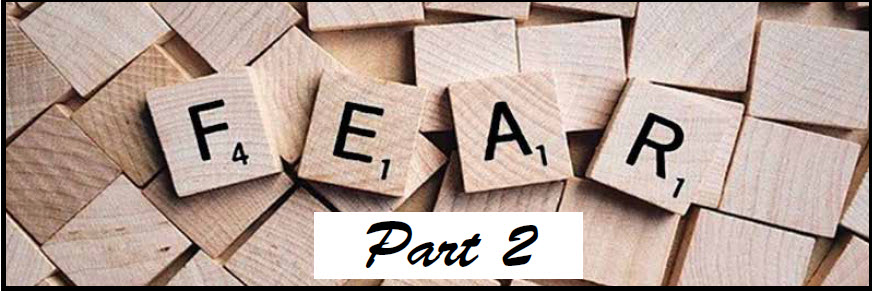Continuing our thoughts on FEAR, let’s consider the power, value, and possible negative results of BOUNDARIES.
Research shows that children behave better on playgrounds with fences. They also utilize the whole area, right up to the fence, whereas, when no boundary is clearly and strongly defined, they tend to stay more toward the center of the area.
Think of the paradox here: A fence increases the child’s sense of safety and freedom within their “world” when they know that beyond these lines, they are not protected. Boundaries: Instructions, sometimes without words. You may go here. Stay within these lines and you will be safe. If you cross these boundaries, there are dangers that you will not be protected from.
Who sets our boundaries? For children, this is most often parents, caregivers, teachers. Since most people reading this are probably adults, let’s explore it from that perspective. In reality, everyone we encounter, as well as a myriad of things in our world, sets a level of boundary for us. From the water flow in the shower, the people you share a home with, the clothes that may or may not fit as well this season as last, the car’s speed, the traffic flow, the limit of people in the elevator, the doors we open and close, the desk top we sometimes fill with clutter, the co-worker we must tolerate even if they are difficult, and the boss we report to…all the way to God, you and I will one day stand before…BOUNDARIES.
We get to CHOOSE how we respond countless times each day to those limitations: Those boundaries. So, the question is: How do you respond to the boundaries life is handing you moment by moment?
First, we need to think. BIG WORD THERE! — T H I N K! All too often in today’s society, we do not think! We take what the world – its people and its things – tell us or call us to do, and we blindly accept it, letting them (whoever they are) tell us what is right. Necessary. True.
Who are YOU? Do you know what you really want for the future? What do you truly value?
Have you ever assessed your options and taken control of the power you possess to determine things you simply WILL NOT DO? Or things you commit to DO?
I smoked cigarettes for a few years, starting in college – everyone else was – (Great reason to blindly follow the pack, right???) When all the “Stop Smoking” campaigns hit the air, I realized that I was damaging my body and endangering my children. One late night when I had smoked all the cigarettes I needed that day, I vowed to never smoke another cigarette. It felt so good to declare my strength. The next morning, I jolted awake and realized what I’d done. I was literally filled with dread and fear. I wanted to keep my word, but oh, how my body craved that addiction. Other than God’s mercy and empowerment, there is no explanation for how I kept that vow completely. I have never had another drag. I could jump off the Empire State Building before I would smoke.
Often I have wondered why I can’t get the same control over other areas of my life, such as sugar consumption, and lack of exercise. But that boundary — “I WILL NEVER …” — gave me great power and resolve. Oh, that I/WE would decide WHO we are and WHAT we will/won’t do.
Mentally carry every thought to its logical conclusion. Suppose you DO give in to that desire to flirt with that co-worker? Will they flirt back…or will they report you for sexual harassment? Suppose they flirt back? Will it end in an affair? Suppose it does and one of you wants out but the other seeks vengeance? Or suppose it works out, and you fall in love (lust?) and marriages are destroyed, children are traumatized, people see you negatively now, and you lost ½ your possessions, or more.
Suppose you recognize that the desire to flirt or respond to another’s advances to you might give you temporary pleasure, but because you have decided beforehand that you will not be unfaithful, you realize that what you want to DO is not something you want to HAVE DONE. What you do might please you for a moment, but what you have done is forever set. Regret and forgiveness are wonderful! Needed! Blessings! But innocence is far better.
See you for PART 3!
Today’s Principle: There should be some things you simply will not do.
Detri would love to hear from you! How do you develop your EI? Especially your thoughts on how to handle criticism, worry, fear or problems you would like to get feedback on from others. Email: detrimcghee@gmail.com or Facebook: Free outline for Criticism Management available at www.criticismmanagement.com.
By: Detri McGhee CLU, ChFC








